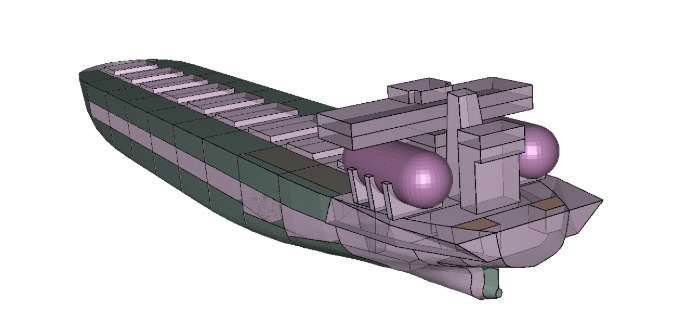The American Bureau of Shipping (ABS) has granted an approval in principle (AiP) for an ammonia-fueled Newcastlemax bulker design from Anglo-Eastern Technical Services (AETS).
To increase cargo space, the dual-fuel vessel has been designed with deck-mounted IMO Type C tanks under the accommodation block on each side of the ship. The system is versatile and can be retrofitted to existing vessels, in addition to ammonia-fueled and ammonia-ready new-builds.
“Ammonia is a fuel with high potential as a solution for shipping companies looking to decarbonize their operations,” commented Christopher Wiernicki, chairman, president and CEO of ABS. “ABS is committed to supporting its safe adoption by the industry and is working with forward-thinking companies such as AETS to develop the systems the industry will require. We are proud to be able to use this industry-leading insight to support their innovative approach.”
Ammonia has the potential to contribute to maritime decarbonization, so ABS has published guidance for the design and construction of ammonia-fueled vessels to support its adoption. The ABS Guide for Ammonia-Fueled Vessels lays out classification design criteria for the arrangement, construction, installation and survey of machinery, equipment and systems for vessels operating with ammonia as a fuel. Its aim is to minimize risk to the vessel, its crew and the surrounding environment.
“The transition to alternative fuels is an unavoidable part of our industry’s journey toward net-zero propulsion technologies,” explained Bjorn Hojgaard, CEO of Anglo-Eastern Univan Group. “Having in place advanced alternative ship designs of equivalent safety as conventional vessels will facilitate the rate of adaptation. We are proud to be a first mover at this critical juncture of decarbonizing international shipping.”
Arunava Sengupta, managing director of AETS, added, “We are delighted to partner with leading classification societies like ABS on such novel projects as our zero-emission, zero-cargo-volume-loss vessel design, the screening and validation of which is an important step in our decarbonization efforts.”



